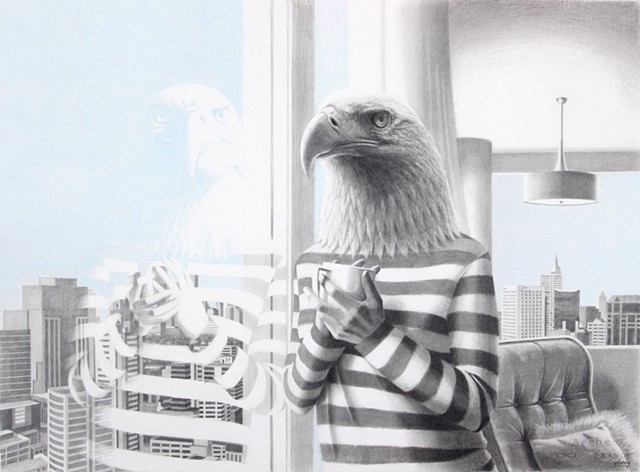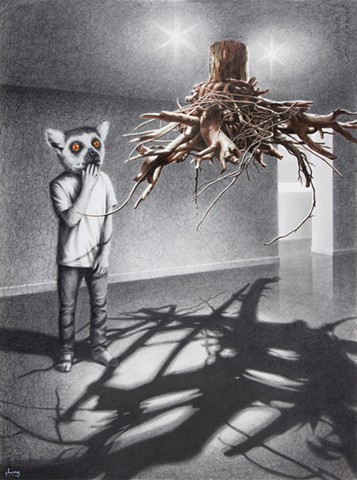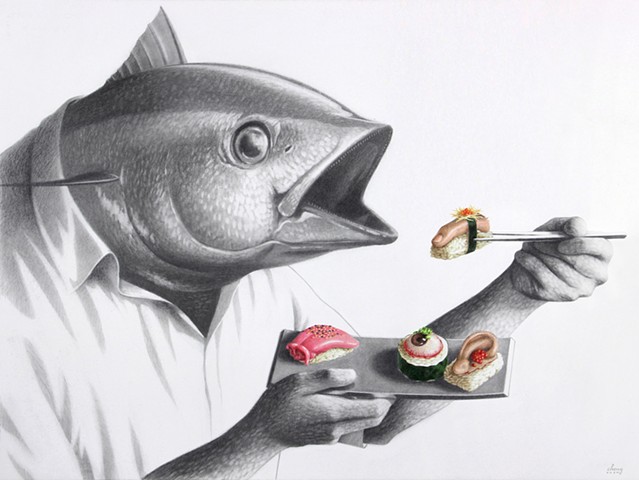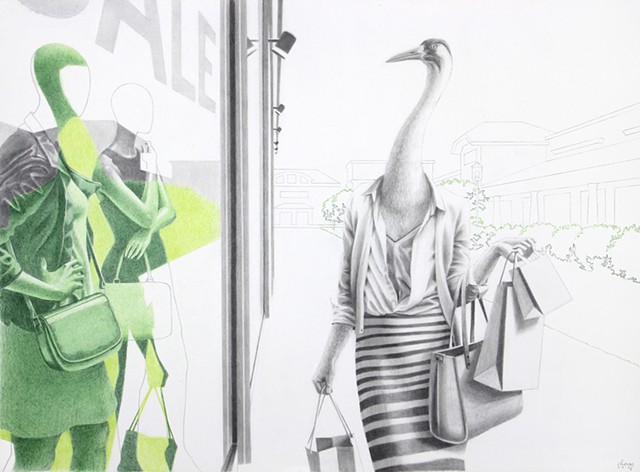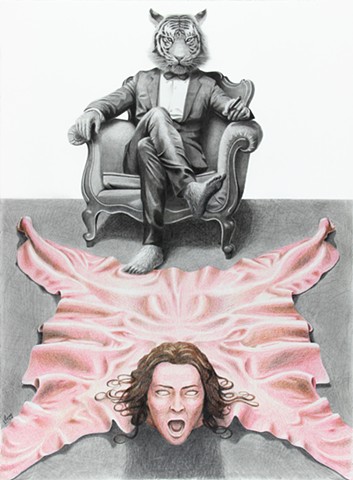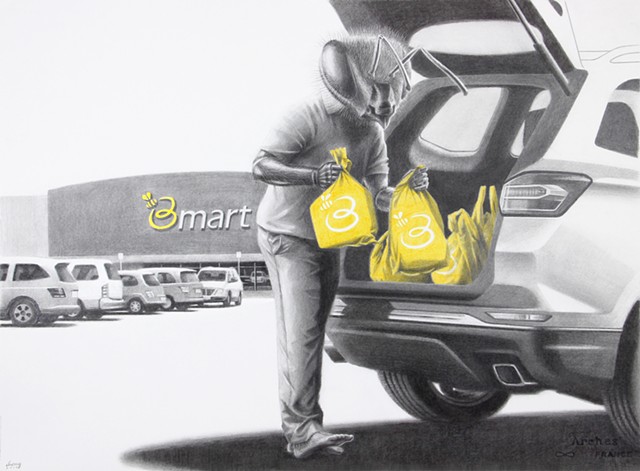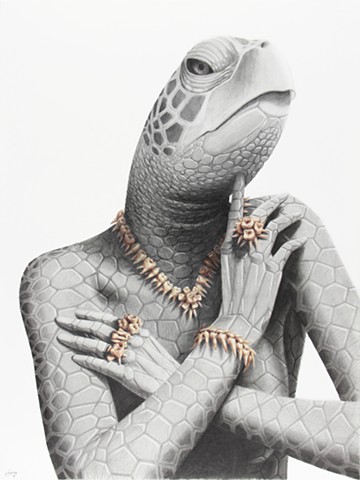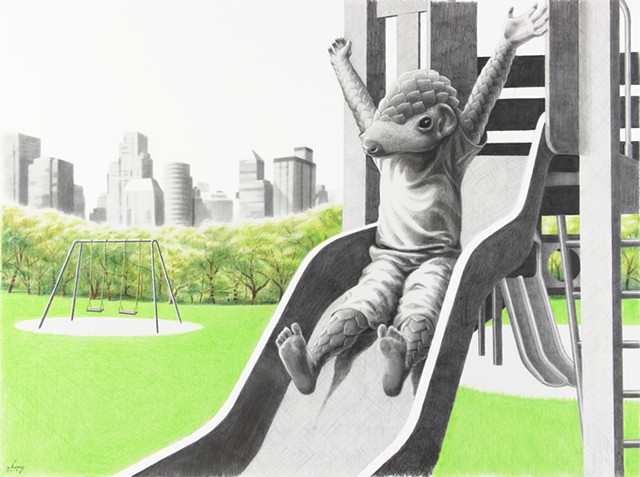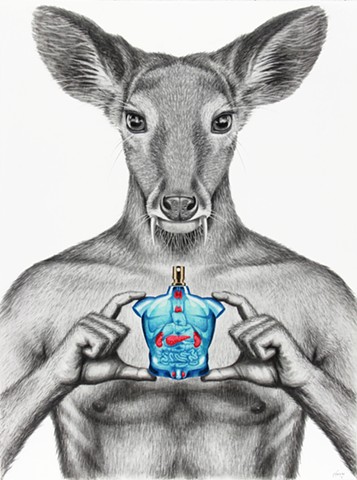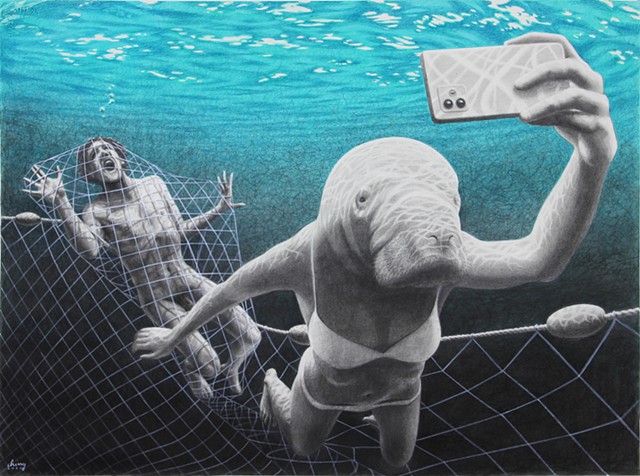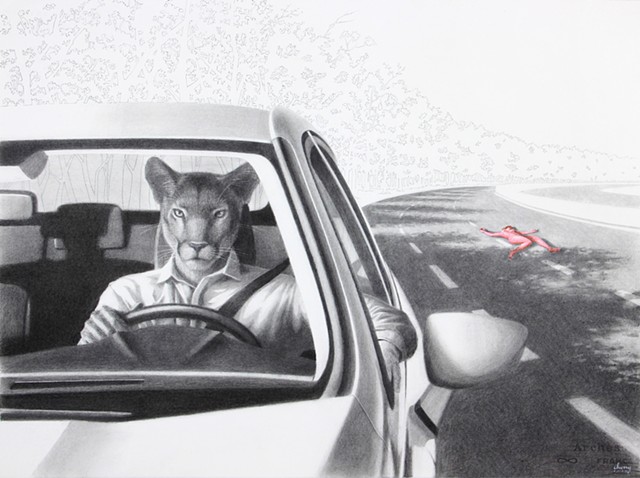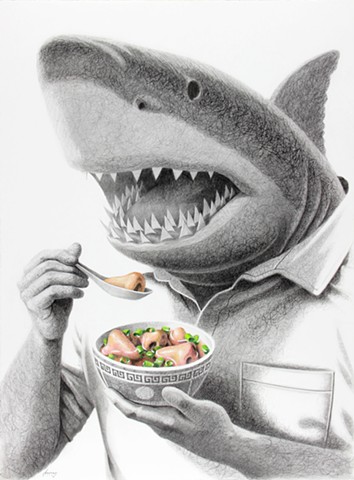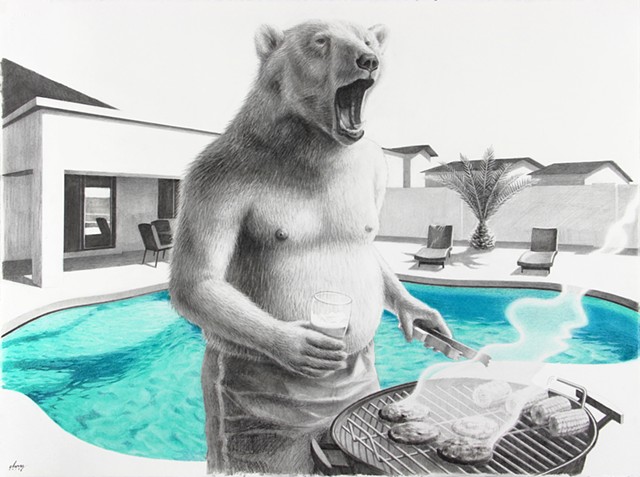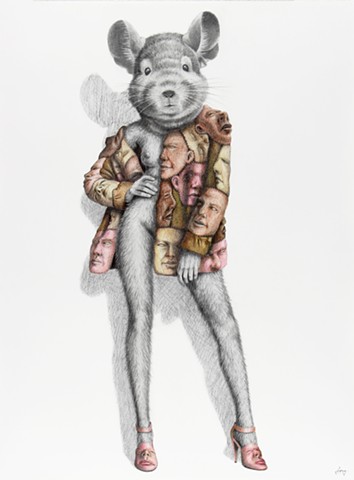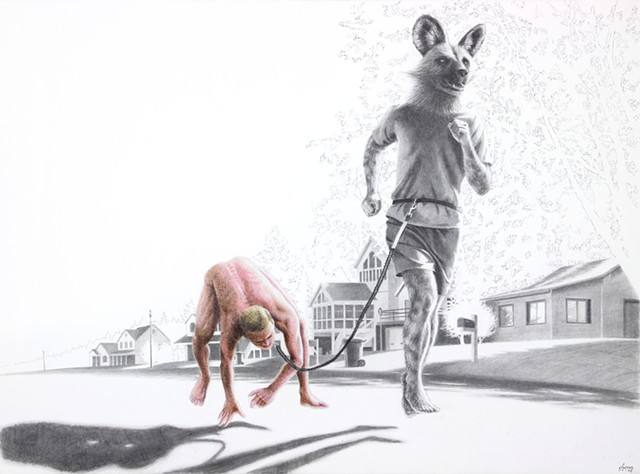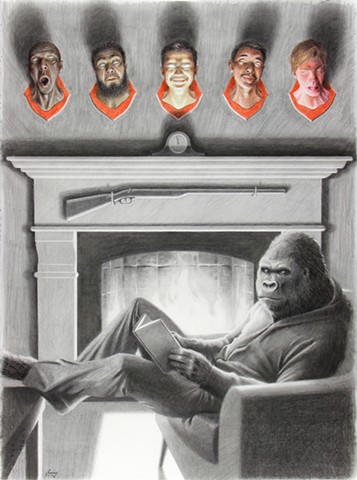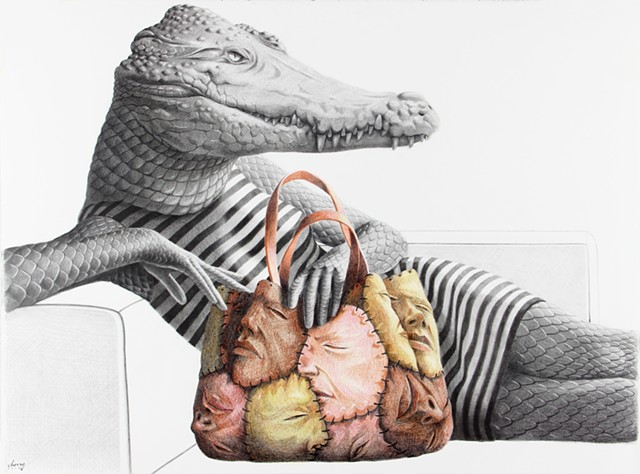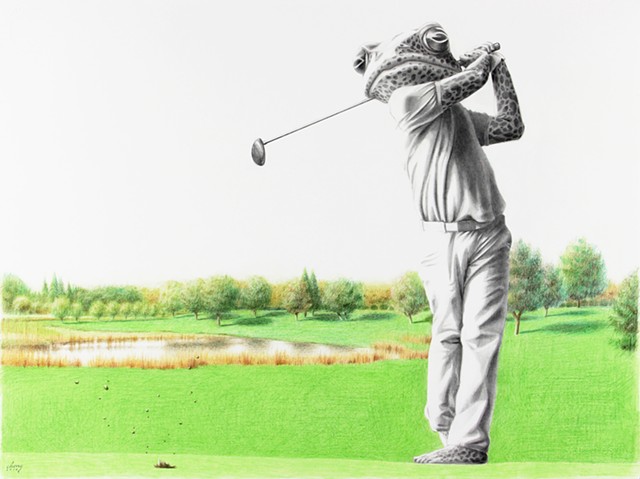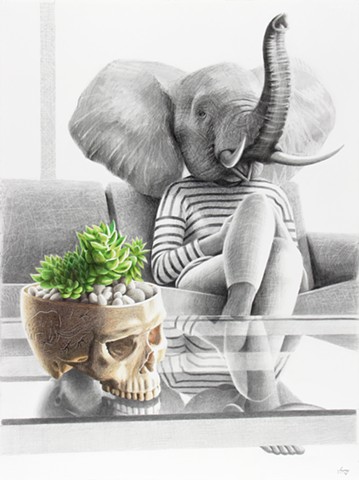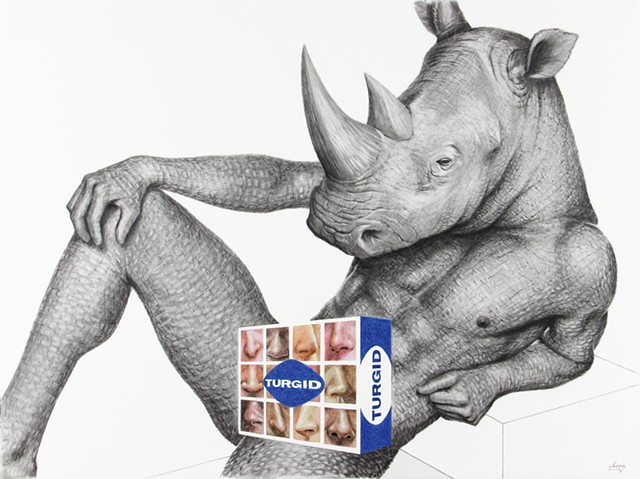"Be Beast" Series
The International Union for Conservation of Nature (IUCN) is the world’s oldest global organization overseeing the status of the natural world and the actions needed to protect it. In 1964, it established the Red List of Threatened Species as a key indicator of planetary biodiversity. Half a century later, the list continues to grow. At the current rate, 50% of animal species worldwide could face extinction by 2050. Because we share ecosystems with these species, our quality of life is inherently tied to theirs
In the U.S. alone, one in four animal species is at risk, from the bee to the manatee. Despite this, the Trump administration weakened environmental protections, including limiting federal funding for the Endangered Species Act (ESA). My work responds to this crisis by portraying both local and global at-risk species. These animals appear as majestic beings worthy of admiration, echoing the seductive visual language of corporate advertising. Using graphite and colored pencils, I mimic promotional styles—such as black-and-white set-ups for color—to highlight themes of consumption, habitat loss, and commodification.
The series takes a surreal turn as endangered animals adopt human form and become the dominant species, treating humans as we treat them. This role reversal provokes emotional engagement while confronting the ethics of how we define and handle animals. The whimsical yet detailed imagery draws viewers in, only to reveal the horror of extinction. The beauty of animals must be protected—standing in stark contrast to the ugliness of human exploitation of Earth’s resources, animals included.
If we accept that we are part of Earth’s biodiversity, then we must also accept responsibility for this crisis. Many species are vanishing due to human activity, but just as many are fading due to neglect. This body of work aims to spotlight extinction before more species disappear into obscurity. It is now up to the viewer to respond: first by becoming aware of how our actions impact other creatures, and then by making meaningful changes as individuals and as a society.
